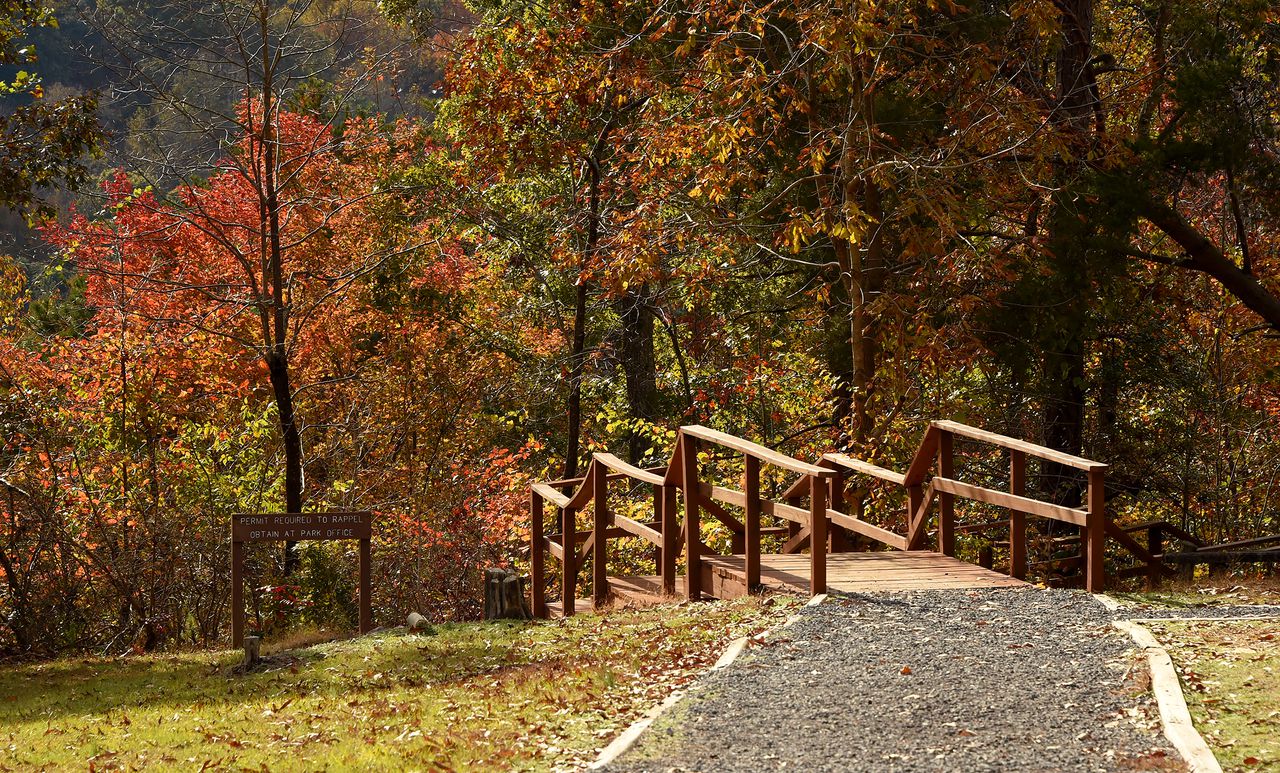Federal lawsuit challenges restriction on firearms in Alabama parks
A Mississippi resident has filed a federal lawsuit challenging an Alabama state parks regulation that requires written permission to carry a firearm into a state park.
William Lee Mitchum, 43, of Pascagoula filed the lawsuit on Monday, claiming the regulation is an unconstitutional infringement on the 2nd Amendment. His lawsuit asks the court to issue an injunction to block its enforcement.
Mitchum, who grew up in Robertsdale and said he is a frequent user of Alabama state parks, learned about the rule in July and exchanged emails and letters with the Alabama Department of Conservation and Natural Resources and the Alabama Attorney General’s office before filing the lawsuit in U.S. District Court for the Middle District of Alabama on Monday.
“The constitution is there to restrict the government from infringing on our rights,” Mitchum said. “It doesn’t give us rights. And I believe they have infringed on our rights by these rules.”
Mitchum visited Meaher State Park on Mobile Bay in July. He said the firearms rule was posted and he talked to the park manager, who told him he could not bring his firearm into the park.
Mitchum had previously learned about the rule and said he went to the park specifically to establish legal standing to challenge the rule. Mitchum said he also went to the pier at Gulf State Park, where a permit is required to carry a firearm.
Attorney General Marshall and the ADCNR declined comment on Mitchum’s lawsuit.
The regulation Mitchum is challenging says: “It shall be unlawful for any person other than a duly authorized law enforcement officer to possess or carry into any State Park any form of firearm without written permission of the manager in charge of the State Park visited.”
Mitchum noted a U.S. Supreme Court decision in June in a gun rights case from New York state. He also noted Marshall’s support for that decision.
That case, New York State Rifle & Pistol Association v. Bruen, concerned a New York law that required a person who wanted to carry a concealed handgun outside the home to prove that “proper cause exists” and to “demonstrate a special need for self-protection distinguishable from that of the general community.”
The justices, in a 6-3 decision written by Justice Clarence Thomas, ruled the proper-cause requirement violated the Fourteenth Amendment by preventing law-abiding citizens with ordinary self-defense needs from exercising their Second Amendment right to keep and bear arms in public for self-defense.
“The exercise of other constitutional rights does not require individuals to demonstrate to government officers some special need,” Thomas wrote.
Marshall joined attorneys general from 24 other states in opposing the New York law and sent out a press release praising the decision that overturned it.
“Similar unlawful restrictions on gun rights in other states will soon be challenged and citizens’ rights to protect themselves will be upheld once and for all,” Marshall said at the time.
Mitchum said Marshall’s office told him in a response to a petition he filed before the lawsuit that the New York case was not applicable to the restriction on firearms in state parks. Mitchum said he was referred to an opinion issued by the attorney general’s office in August. That opinion, 2022-044, came in response to a question from the U.S.S. Alabama Battleship Commission on whether the commission had the authority to prohibit firearms in Battleship Park. The opinion said the commission did have that authority.
Mitchum said he believes there is an inconsistency in opposing the New York law and defending the firearms restriction on Alabama state parks users.
Mitchum said he understands there are valid restrictions on Second Amendment rights that apply to certain places, such as courthouses, legislative chambers, and polling places. But he said state parks do not fit those categories of sensitive locations. Mitchum said he hopes his lawsuit can end the restriction.
“There’s a big distinction between a state park and a courthouse or a legislative body,” Mitchum said. “Essentially, what the Department of Conservation and Natural Resources has done is created a gun-free zone on state parks. And so, say when somebody is out there walking around and there’s a rabid animal attacking them, they have no way to defend themselves.”
“My hope is that law-abiding citizens will have their Second Amendment right to defend themselves in public spaces, and specifically Alabama state parks,” Mitchum said.
